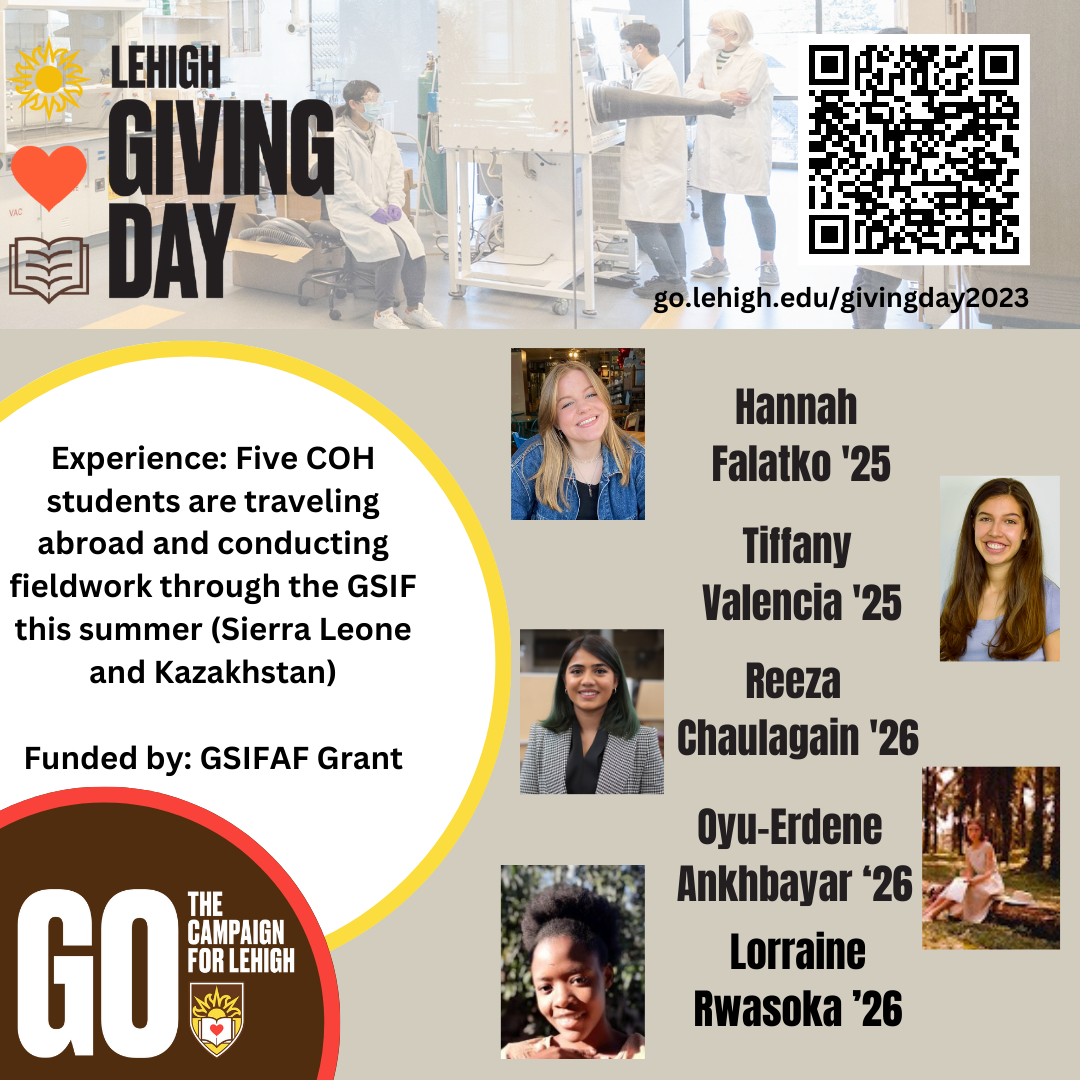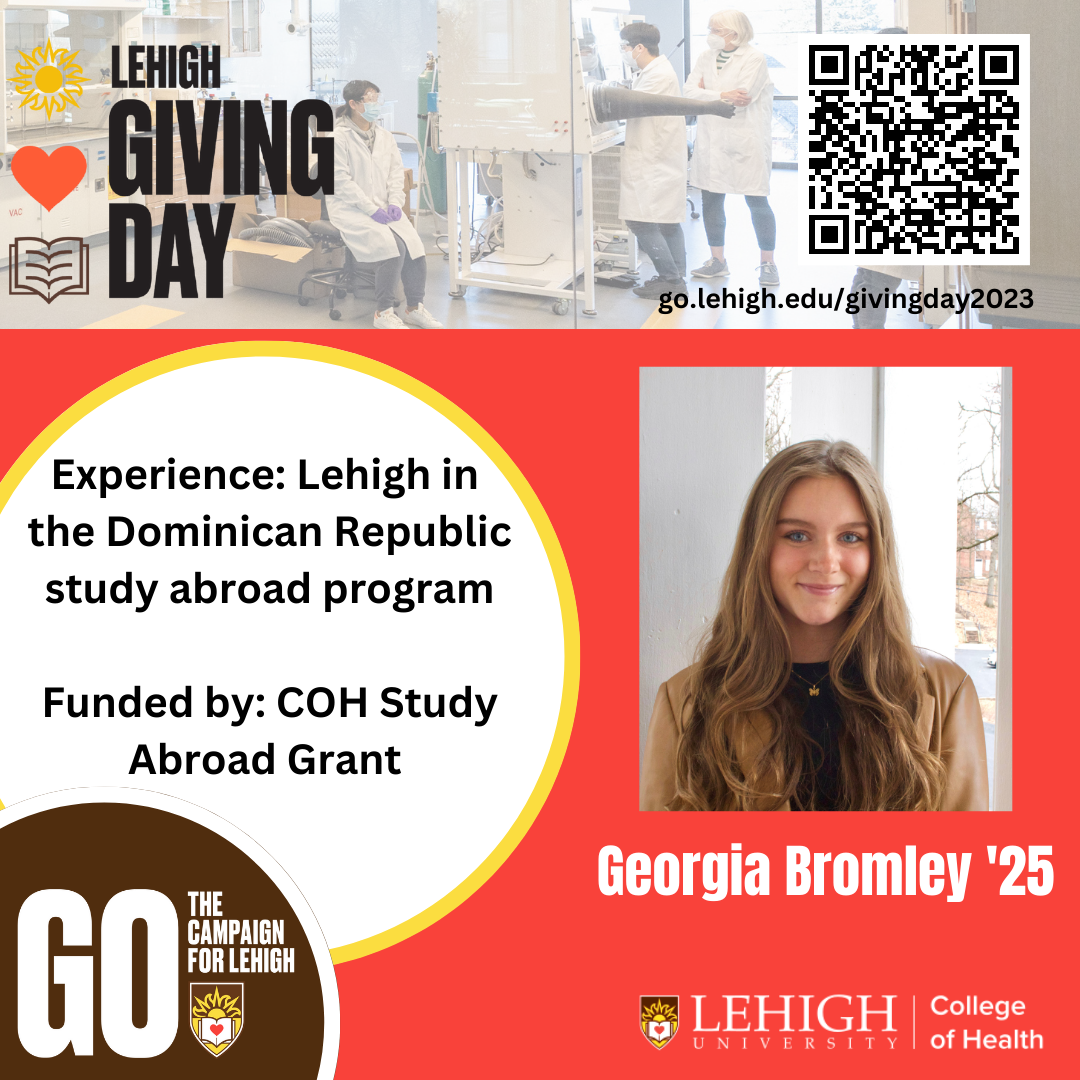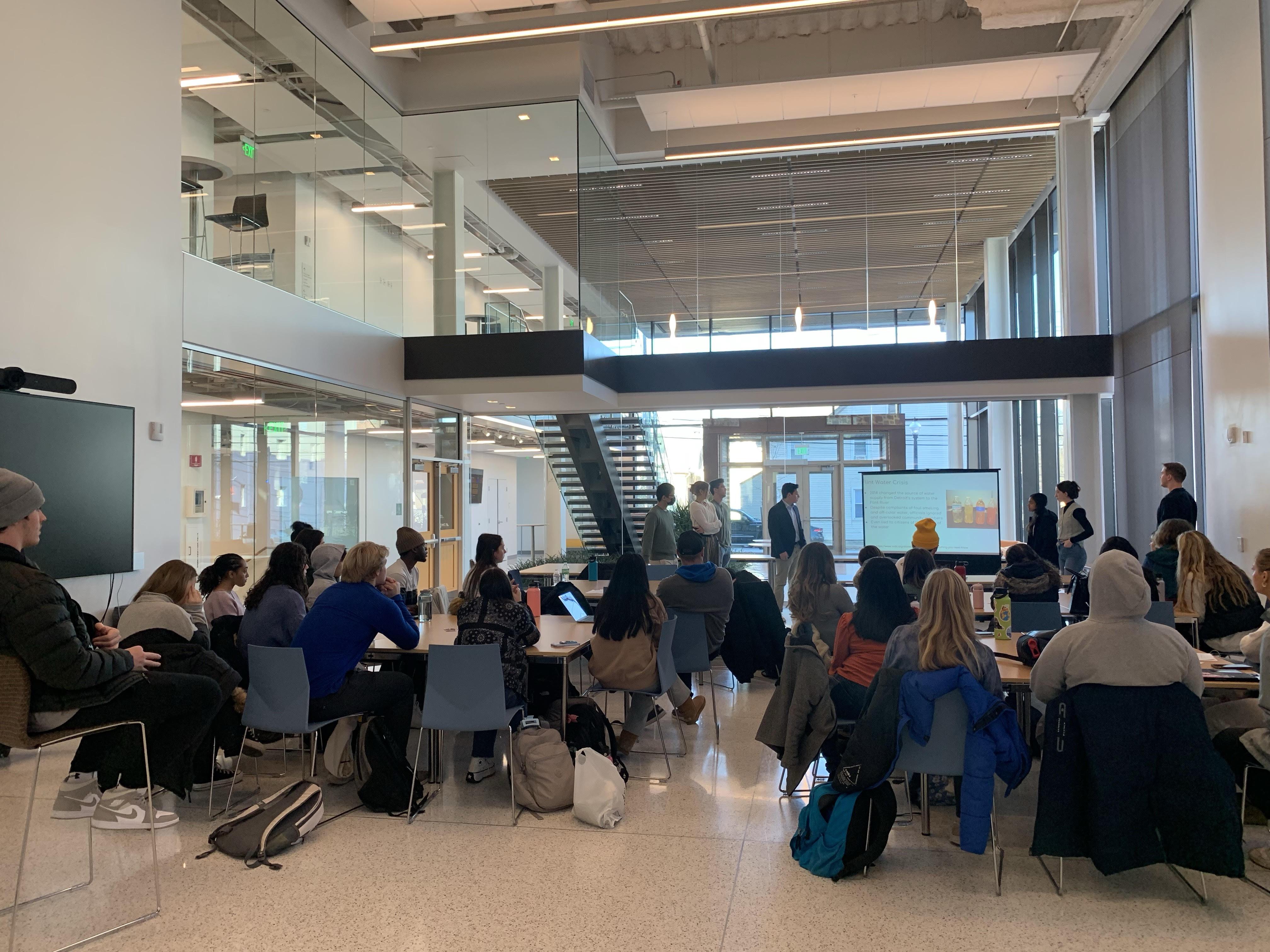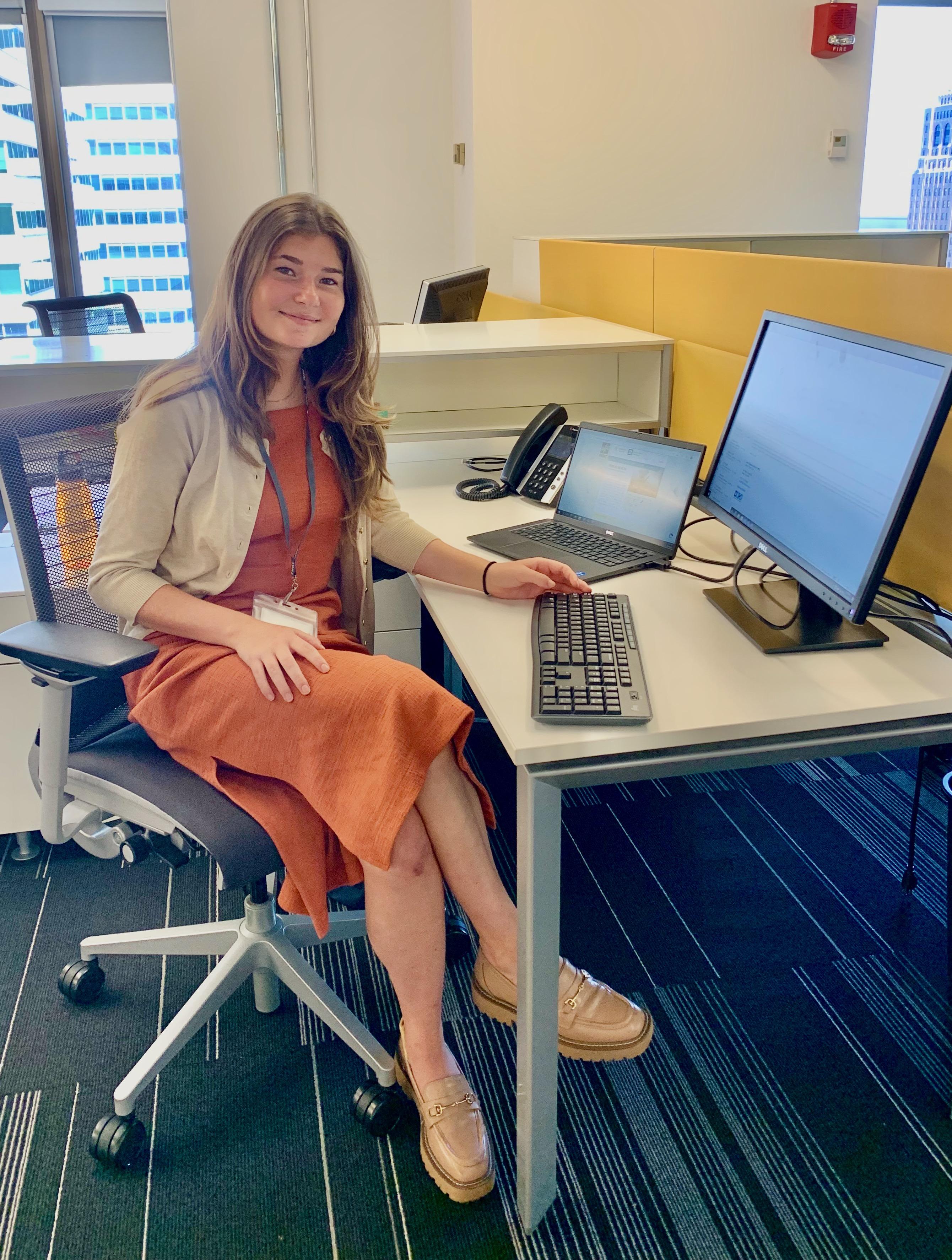
Student Experiential Learning: Meet the COH Global Social Impact Fellows
Five College of Health students are currently gearing up to make a big impact abroad this summer through the Global Social Impact Fellowship (GSIF). Hannah Falatko ’25, Tiffany Valencia ’25, Reeza Chaulagain ’26, and Lorraine Rwasoka ’26 and will be headed to Sierra Leone, while Oyu-Erdene Ankhbayar ‘26 will be traveling to Kazakhstan.
The GSIF provides a select group of students the opportunity to create tangible social change by addressing sustainable development challenges in low-income countries. These multi-year programs combine research, fieldwork, and experiential learning.
Falatko and Valencia are members of the “Mothers of Sierra Leone” documentary project. The team is making educational films about maternal health resources in Sierra Leone, distributing those films to women in the country, conducting research and analyzing data on the efficacy of their films.
The goal is “to build a bridge of trust between the health care system and the community so that more people will use the health care system, and then eventually, the maternal mortality rate will go down,” explained Falatko.
Tiffany Valencia is currently in her second year on the project and just completed her film on the Holy Spirit Clinic in Sierra Leone. Her film aims to educate mothers on their services and show them that the clinic is committed to helping them have a safe and comfortable pregnancy, she said.
Both Falatko and Valencia look forward to making connections while in country, with Falatko describing the trip as a “once in a lifetime opportunity.”
Lorraine Rwasoka and Reeza Chaulagain will be heading to Sierra Leone for a different project: “Innovations in Maternal Health and Cervical Cancer Prevention.” The team has designed Ukweli Test Strips, a low-cost test strip that screens for preeclampsia in pregnant women and urinary tract infections, which is distributed to local health care clinics.
The test strips are important because Sierra Leone and sub-Saharan African countries “are facing a lot of maternal mortality challenges yearly, mainly because they do not have the resources, and there just isn’t a lot of education about maternal health and cervical cancer,” said Rwasoka. They are also working to create awareness of the HPV vaccine and cervical cancer.
Ahead of the trip abroad, the team is busy working on a grant proposal for Grant Challenges Canada to help scale the venture in Sierra Leone and into Liberia. They are also working on a research paper, a comprehensive analysis of cervical cancer programs in Sierra Leone.
This summer, the team will be conducting fieldwork, visiting the community health workers, and conducting interviews with the women, in order to see what’s working and what could be improved.
As a native of Zimbabwe, Rwasoka could not be more excited to travel back to Africa to help implement change. “This really means a lot that the College of Health is funding its students, to be able to help us achieve great things and make the world better,” she added.
Chaulagain shares that excitement. Raised in Nepal, she hopes to utilize the skills gained from this experience to one day return to Nepal and help improve the country’s health care infrastructure, she said.
Oyu-Erdene Ankhbayar, who hails from Mongolia, is looking to make positive change in Kazakhstan through “Air Quality Initiatives in Almaty.” As one of the biggest cities in Kazakhstan, Almaty is experiencing a high level of air pollution. The team is focusing on behavior change and ways to prevent exposure to air pollution, specifically working to develop affordable air monitors and air filters. They are also working on area-specific research proving the consequences of air pollution on health and cognitive performance.
While in Kazakhstan, the team will test monitors and filters in the area, conduct market research, and meet with partners. Visiting the area and experiencing the problem that they are trying to solve first-hand is really important, Ankhbayar said.
The funding is especially meaningful. “I’m really grateful that I have this opportunity to go there, and also to work on my project,” said Ankhbayar. “I’m super happy about that, and I’m really thankful for everyone who granted me this opportunity.”
These five students were all supported by the College of Health’s Global Social Impact Assistance Fund (GSIFAF), which provides funding for travel, airfare, vaccinations, and other expenses not covered by the GSIF.


